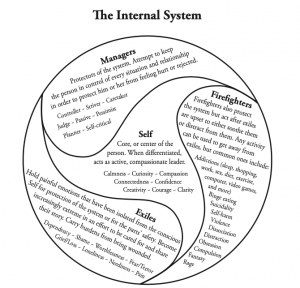
Understanding Internal Family Systems: A Path to Inner Harmony
Have you ever felt like different parts of you were at odds with each other? Maybe one part of you is eager to take on a new challenge, while another part is filled with doubt and fear. Or perhaps you struggle with inner criticism, feeling like there’s a voice inside that constantly judges your actions. If this sounds familiar, you’re not alone—and Internal Family Systems (IFS) may offer a powerful way to understand and heal these inner conflicts.
What is Internal Family Systems (IFS)?
Internal Family Systems is a therapeutic model developed by Dr. Richard Schwartz that views the mind as made up of different sub-personalities, or “parts.” Instead of seeing ourselves as one singular identity, IFS helps us understand that we are composed of various internal voices, each with its own motivations, fears, and desires. At the core of IFS is the belief that all parts of us have positive intentions—even those that cause us pain or seem self-destructive.
The Three Main Types of Parts in IFS
- Exiles – These are wounded parts of ourselves that carry deep emotional pain, often from past traumas. They are often hidden away because they feel overwhelming or unsafe to acknowledge.
- Managers – These parts work proactively to keep us functioning and safe, often through perfectionism, control, or judgment. They try to prevent pain by keeping our exiles suppressed.
- Firefighters – These parts react impulsively when our exiles’ pain is triggered. They may engage in behaviors like overeating, substance use, or avoidance to numb difficult emotions quickly.
The Role of the Self
Beyond these parts, IFS emphasizes the presence of the Self, which is our true, undamaged core. The Self is compassionate, wise, and capable of leading all parts toward healing. The goal of IFS therapy is to help our parts trust the Self so they can let go of their extreme roles and find balance.
How IFS Promotes Healing
IFS therapy involves building a relationship with our parts, helping them feel heard, and allowing the Self to take a leadership role. Through this process, we can:
- Reduce inner conflict and self-judgment
- Heal past traumas by giving wounded parts a voice
- Develop greater emotional resilience and self-compassion
Applying IFS in Everyday Life
Even without formal therapy, you can use IFS principles to improve your relationship with yourself:
- Notice your parts. When you feel inner tension, try identifying the different voices at play.
- Get curious. Instead of suppressing emotions, ask: “What is this part trying to tell me?”
- Lead with Self. Respond to your parts with compassion, like you would to a friend in need.
Final Thoughts
IFS offers a profound way to understand and harmonize your inner world. By embracing all parts of yourself with compassion, you can reduce emotional reactivity, heal past wounds, and cultivate a more balanced, fulfilling life.
Have you explored IFS in your personal journey? Share your experiences in the comments!

